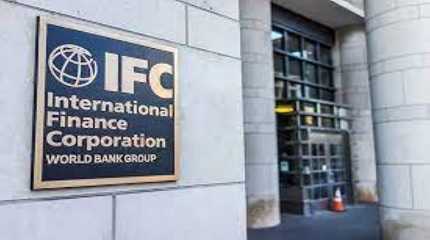
KIGALI, Oct. 1 (Xinhua) -- Jean Paul Kubwimana, a Rwandan resident, is engaged in a lucrative greenhouse farming venture after receiving support from the Sustainable Agricultural Intensification and Food Security Project (SAIP), a project funded by the World Bank.
"I thank SAIP for supporting me to acquire a greenhouse through a matching grant and for providing training on how to maintain it, enabling my crops to thrive. I cultivated tomatoes in the greenhouse, and the yield is extremely amazing," Kubwimana, a father of two, told Xinhua in a recent interview.
Kubwimana said that before venturing into greenhouse farming, he was a commercial motorcyclist and also cultivated vegetables, including tomatoes, in the open field. The income he received was insufficient to sustain his family.
SAIP has supported farmers in acquiring greenhouses through matching grants with the aim of increasing productivity and promoting the use of this technology. The 40-year-old Kubwimana is among the smallholder farmers and investors in SAIP's intervention sites countrywide who received greenhouses from the project through matching grants.
Kubwimana's story resonates with stories of many Rwandans in various sectors of the economy who have immensely benefited from the World Bank's support towards the social and economic development of the country.
The World Bank and the government of Rwanda celebrated the 60th anniversary of their fruitful partnership on Friday evening.
"Our steadfast partnership with Rwanda began 60 years ago when the country became a member of the International Bank for Reconstruction and Development and the International Development Association," said Keith Hansen, World Bank country director for Kenya, Rwanda, Somalia, and Uganda, at the event.
"Over those years, the World Bank has financed investments and powered operations across a wide array of sectors, including human capital, infrastructure, agricultural resilience, and private sector development, for a total of 8.2 billion U.S. dollars, contributing substantially to Rwanda's development," he said. "Rwanda embodies the story of poverty reduction and development."
Hansen reaffirmed that Rwanda and the World Bank will continue to work together to further advance the country's transformation and achieve green resilience and inclusive development.
Uzziel Ndagijimana, Rwandan minister of finance and economic planning, said at the event that the government of Rwanda recognizes the unwavering role of the World Bank in supporting the country's development trajectory over the past six decades.
"The World Bank has been responsive and flexible in our cooperation as we address various development challenges," he said. "This anniversary provides an opportunity to reflect on the role of the World Bank in the country's development over the last six decades and discuss future prospects, exploring new areas of partnership."
According to Ndagijimana, the World Bank and Rwanda have achieved tangible results in reducing poverty, improving human capital, promoting the private sector, increasing access to infrastructure, improving agricultural production and commercialization, as well as boosting urban development and digital acceleration programs.
"We also acknowledge the World Bank's knowledge and technical assistance that has helped to design and implement innovative and evidence-based policies and programs, such as the future drivers of growth. This has been an important guiding tool in helping us achieve our ambitious goals of becoming an upper-middle-income country by 2035 and a high-income country by 2050," Ndagijimana said.
The event was attended by government officials, development partners, members of the private sector, and civil society organizations, among others.




